
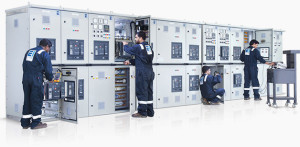
General rules of electrical installation design
- Connection to the MV utility distribution network
- Connection to the LV utility distribution network
- LV Distribution
- LV switchgear
- Load
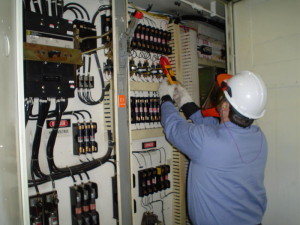
Conditions that can make more frequent maintenance necessary are:
- High humidity and ambient temperatures
- Corrosive atmosphere
- Excessive dirt and dust
- High repetitive duty
- Frequent interruption of faults
- Older equipment
- History on preceding inspections
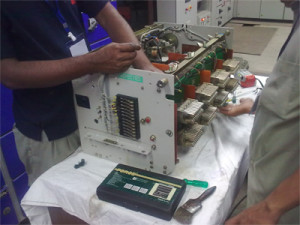
Preventive maintenance
Preventive maintenance consists in carrying out, at predetermined intervals or according to prescribed criteria, checks intended to reduce the probability of a failure or deterioration in the operation of a system.
When switchgear malfunctions, the consequences are often catastrophic. Damage to the switchgear itself can be extremely expensive, but that pales in comparison to corollary damage and the potential hazards to people. Thats why implementing an effective switchgear testing, inspection and maintenance program is essential.
Shivam provides the complete electrical testing, maintenance and engineering services you need to extend the life of your switchgear. Our comprehensive services are in line with National Fire Protection Association (NFPA) recommendations, and designed to keep your switchgear operational for as long as possible.
IS 10118: Code of Practice for selection, installation & maintenance of switchgear & control gear / IEC60364-6 require initial and periodic verifications of electrical installations. The electrical switchboard and all its equipment continue to age whether they operate or not. This aging process is due mainly to environmental influences and operating conditions.
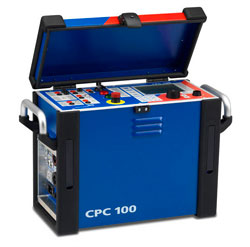
There are two types of preventive maintenance:
Periodic maintenance
For each type of product, maintenance recommendations are laid out by the product manufacturer or described in IS / IEC Standards. These verification procedures, intended to maintain systems or their subassemblies in correct operating condition over the targeted service life, must be carried out according to the time intervals stipulated in this document.
Conditional maintenance
To a certain extent, conditional-maintenance operations are a means to reduce (but not eliminate) the recommended periodic-maintenance operations (thus limited to the strict minimum) that require an annual shutdown of the installation.
These operations are launched when programmed alarms indicate that a predefined threshold has been reached. (Number of operation > durability, aging indicators
Electronic trip units in power circuit breaker can propose such functions. Conditional maintenance is the means to optimise installation maintenance.
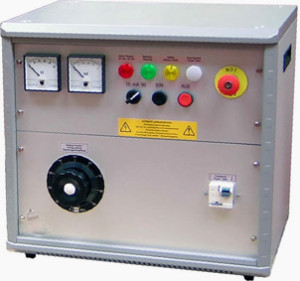
Maintenance level
There are three recommended maintenance levels.
The table below indicates maintenance operations and their intervals according to the level:
| Sr. no | Level | Maintenance Interval* | Maintenance operations |
| 1 | I | 6 Months | Visual inspection and functional testing, replacement of faulty accessories |
| 2 | II | One Year | As for level I plus servicing operation and subassembly tests |
| 3 | III | Two Year | As for level II plus diagnostics[ Thermography, calibration, verification of test results on electronic / microprocessor release etc] and repairs / refurbished / retrofit |
*The intervals stated are for normal environmental and operating conditions.
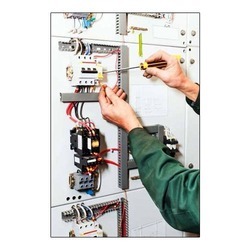
Key service offerings- Maintenance
- Emergency breakdown
- LV Air Circuit Breaker
- Moulded Case Circuit Breaker
- Motor Control Centres
- APFC Panel
- Release / Relay Testing using secondary injection source
- Refurbishments / replacement